Members
Membership of the International Life Cycle Academy is awarded after nomination by the current Academy members and is limited to a maximum of 30 university employees
DR. Pere Fullana i Palmer
UNESCO Chair in Life Cycle and Climate Change, Spain
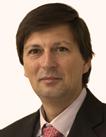 Dr. Fullana is the Director of the UNESCO Chair in Life Cycle and Climate Change and the Green Dot Packaging Life Cycle Observatory at the School of International Trade (ESCI-Universitat Pompeu Fabra). He is also the Spanish delegate for the the ISO 14000 environmental management standards and the CEN standards for sustainable construction and life cycle assessment (LCA) as applied to packaging. He is an editor for the International Journal of LCA (IJLCA). Dr. Fullana founded the Environmental Department in the consulting firm, Randa Group and was the Technical Director until December 2002. He acted as President of the LCA Direction Committee for SETAC Europe and a member of the Governing Council.
Dr. Fullana is the Director of the UNESCO Chair in Life Cycle and Climate Change and the Green Dot Packaging Life Cycle Observatory at the School of International Trade (ESCI-Universitat Pompeu Fabra). He is also the Spanish delegate for the the ISO 14000 environmental management standards and the CEN standards for sustainable construction and life cycle assessment (LCA) as applied to packaging. He is an editor for the International Journal of LCA (IJLCA). Dr. Fullana founded the Environmental Department in the consulting firm, Randa Group and was the Technical Director until December 2002. He acted as President of the LCA Direction Committee for SETAC Europe and a member of the Governing Council.
PROF. MANUELE MARGNI, CIRAIG, Canada
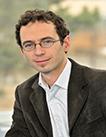 Manuele Margni is an environmental engineer by training, who graduated from ETH Zürich in 1996 and later completed his Masters degree at Ecole Polytechnique Federale de Lausanne (EPFL). Manuele completed his PhD in 2003 with at EPFL in collaboration with LBL Laboratory at UC Berkeley (United States). He continued to work as research assistant and project manager in the Life Cycle Systems group at the EPFL, whilst creating the spin-off Ecointesys – Life Cycle Systems sagl. In September 2005, Manuele Margni joined the CIRAIG at the Ecole Polytechnique of Montréal as a research associate, and is now a Professor in Industrial Engineering departement. He’s a founder of Quantis International SA, created in 2009 from a joint venture between his former spin-off and the CIRAIG.
Manuele Margni is an environmental engineer by training, who graduated from ETH Zürich in 1996 and later completed his Masters degree at Ecole Polytechnique Federale de Lausanne (EPFL). Manuele completed his PhD in 2003 with at EPFL in collaboration with LBL Laboratory at UC Berkeley (United States). He continued to work as research assistant and project manager in the Life Cycle Systems group at the EPFL, whilst creating the spin-off Ecointesys – Life Cycle Systems sagl. In September 2005, Manuele Margni joined the CIRAIG at the Ecole Polytechnique of Montréal as a research associate, and is now a Professor in Industrial Engineering departement. He’s a founder of Quantis International SA, created in 2009 from a joint venture between his former spin-off and the CIRAIG.
Link: http://www.polymtl.ca/recherche/rc/en/professeurs/details.php?NoProf=420
PROF. Michael Hauschild
Technical University of Denmark (DTU), Denmark
 Michael Hauschild, Ph.D, M.Sc.(Chem.Eng.) is a professor and Head of the section for Quantitative Sustainability Assessment at the Department of Systems, Production and Management of DTU. He has been responsible for the department’s Life Cycle Engineering research activities, teaching and professional training for more than a decade. He has been a member of the Editorial Board of The Int. J. of LCA since 1998, subject editor for LCIA of human and ecotoxic impacts 2008 and he has been subject editor on LCA for the J. of Industrial Ecology since 2010. In addition he is associate editor for CIRP J. of Manufacturing Science and Technology, member of editorial boards for the CIRP Annals – Manufacturing Technology, Int. J. of Sustainable Manufacture, and Int. J. of Sustainable Engineering. Furthermore, he is founding Chair of the Nordic Life Cycle Association.
Michael Hauschild, Ph.D, M.Sc.(Chem.Eng.) is a professor and Head of the section for Quantitative Sustainability Assessment at the Department of Systems, Production and Management of DTU. He has been responsible for the department’s Life Cycle Engineering research activities, teaching and professional training for more than a decade. He has been a member of the Editorial Board of The Int. J. of LCA since 1998, subject editor for LCIA of human and ecotoxic impacts 2008 and he has been subject editor on LCA for the J. of Industrial Ecology since 2010. In addition he is associate editor for CIRP J. of Manufacturing Science and Technology, member of editorial boards for the CIRP Annals – Manufacturing Technology, Int. J. of Sustainable Manufacture, and Int. J. of Sustainable Engineering. Furthermore, he is founding Chair of the Nordic Life Cycle Association.
DR. Sangwon Suh
University of California, Santa Barbara
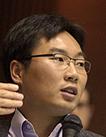 Sangwon Suh is an Assistant Professor in Corporate Environmental Management, Industrial Ecology, and LCA. He attained his PhD from Leiden University (Netherlands), and his MS and BS in Environmental Engineering at Ajou University (South Korea). Sangwon’s research interests include how materials and energy are extracted from nature, how they are transformed and used, and, finally, how they are discarded back to nature, which forms the metabolic structure of the coupled, human-nature complexity. In addition to making important theoretical and applied contributions in LCA, MFA, I/O and their combinations), he also is contributing to the policy and economics literature. Although he has covered a wide range of resources, several of his most recent contributions have focused on carbon and water, in part due to his growing interest in the issues associated with biofuels.
Sangwon Suh is an Assistant Professor in Corporate Environmental Management, Industrial Ecology, and LCA. He attained his PhD from Leiden University (Netherlands), and his MS and BS in Environmental Engineering at Ajou University (South Korea). Sangwon’s research interests include how materials and energy are extracted from nature, how they are transformed and used, and, finally, how they are discarded back to nature, which forms the metabolic structure of the coupled, human-nature complexity. In addition to making important theoretical and applied contributions in LCA, MFA, I/O and their combinations), he also is contributing to the policy and economics literature. Although he has covered a wide range of resources, several of his most recent contributions have focused on carbon and water, in part due to his growing interest in the issues associated with biofuels.
PROF. Cássia Maria Lie Ugaya
Federal University of Technology – Paraná (UTFPR), Brazil
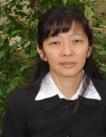 Cássia Maria Lie Ugaya is professor at the Federal University of Technology – Paraná (UTFPR) in Curitiba, Brazil where she leads the Life Cycle Sustainability Assessment Group. She is one of the Program Manager Office of the Capacity Building Flagship of the UNEP and SETAC Life Cycle Initiative and member of the ecoinvent Editorial Board. She is co-founder of the Ibero American Life Cycle Network and the Brazilian Life Cycle Association. She co-authored the publications Towards Life Cycle Sustainability Assessment: making informed choices of products and the Guidelines for Social Life Cycle Assessment. Cassia also organized the First Brazilian Life Cycle Management Conference and has been member of the Scientific Committee of the International Conference on Life Cycle Assessment (CILCA) since the first edition, in 2005.
Cássia Maria Lie Ugaya is professor at the Federal University of Technology – Paraná (UTFPR) in Curitiba, Brazil where she leads the Life Cycle Sustainability Assessment Group. She is one of the Program Manager Office of the Capacity Building Flagship of the UNEP and SETAC Life Cycle Initiative and member of the ecoinvent Editorial Board. She is co-founder of the Ibero American Life Cycle Network and the Brazilian Life Cycle Association. She co-authored the publications Towards Life Cycle Sustainability Assessment: making informed choices of products and the Guidelines for Social Life Cycle Assessment. Cassia also organized the First Brazilian Life Cycle Management Conference and has been member of the Scientific Committee of the International Conference on Life Cycle Assessment (CILCA) since the first edition, in 2005.
DR. Hongtao Wang
Sichuan University, China
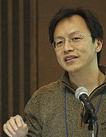 Hongtao Wang is an associate professor in the College of Architecture and Environment, Sichuan University, China. He has been leading the development of LCA software (eBalance) and LCA database (Chinese Life Cycle Database, CLCD), which were published in 2010. The research is also targeted at various LCA applications, such as environmental assessment of technology, Eco-design, Cleaner Production, Environmental Production Declaration and Product Carbon Footprint. He won the first place of UNEP-SETAC LCA Award (for developing and emerging countries) in 2009 for the Chinese LCA database research.
He was the Chinese contact person for technical support in the International Reference Life Cycle Data System (ILCD). In collaboration with UNEP-SETAC Life Cycle Initiative, he founded and organized the first two Chinese Conferences on Life Cycle Management (CLCM) in 2008 and 2009. He is also the co-chair of the capacity building working area in UNEP-SETAC Life Cycle Initiative since 2010.
Hongtao Wang is an associate professor in the College of Architecture and Environment, Sichuan University, China. He has been leading the development of LCA software (eBalance) and LCA database (Chinese Life Cycle Database, CLCD), which were published in 2010. The research is also targeted at various LCA applications, such as environmental assessment of technology, Eco-design, Cleaner Production, Environmental Production Declaration and Product Carbon Footprint. He won the first place of UNEP-SETAC LCA Award (for developing and emerging countries) in 2009 for the Chinese LCA database research.
He was the Chinese contact person for technical support in the International Reference Life Cycle Data System (ILCD). In collaboration with UNEP-SETAC Life Cycle Initiative, he founded and organized the first two Chinese Conferences on Life Cycle Management (CLCM) in 2008 and 2009. He is also the co-chair of the capacity building working area in UNEP-SETAC Life Cycle Initiative since 2010.
DR. Miguel Brandão
KTH – Stockholm, Sweden
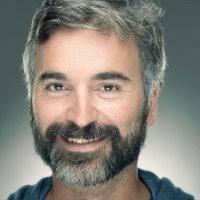 Miguel Brandão is Associate Professor in Industrial Ecology and Life Cycle Assessment at KTH, Stockholm. Over the last 10 years, he has taught and/or researched on Life Cycle Assessment (LCA) at a number of institutions across the world. His main interest is on the use of industrial ecology and life cycle approaches to support decision-making regarding our transition towards a sustainable society. His research has focused on the integrated sustainability assessment of land-use systems, with emphasis on their impact on climate change, resource depletion, ecosystem services and biodiversity. His focus is on land-use competition, particularly the consequential impacts of using land for food, feed, fuel, timber and carbon sinks on the economy, ecosystems and climate. Partly under the UNEP-SETAC Life Cycle Initiative, he developed methods for the impact assessment of land use in LCA and for quantifying indirect land-use change (iLUC). He also contributed to the estimation of the carbon footprints of a range of biofuels and biomass, which are currently applied in the European Commission’s Renewable Energies Directive.
Miguel Brandão is Associate Professor in Industrial Ecology and Life Cycle Assessment at KTH, Stockholm. Over the last 10 years, he has taught and/or researched on Life Cycle Assessment (LCA) at a number of institutions across the world. His main interest is on the use of industrial ecology and life cycle approaches to support decision-making regarding our transition towards a sustainable society. His research has focused on the integrated sustainability assessment of land-use systems, with emphasis on their impact on climate change, resource depletion, ecosystem services and biodiversity. His focus is on land-use competition, particularly the consequential impacts of using land for food, feed, fuel, timber and carbon sinks on the economy, ecosystems and climate. Partly under the UNEP-SETAC Life Cycle Initiative, he developed methods for the impact assessment of land use in LCA and for quantifying indirect land-use change (iLUC). He also contributed to the estimation of the carbon footprints of a range of biofuels and biomass, which are currently applied in the European Commission’s Renewable Energies Directive.
DR. Ralph K. Rosenbaum
IRTA Catalan Institute for Research and Technology in Agriculture, Spain
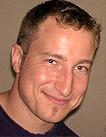 Ralph K. Rosenbaum completed his Ph.D. at the Swiss Federal Institute of Technology Lausanne in 2006. He completed his Diplomingenieur Environmental Engineering (the equivalent of an M.Sc.) at the Technical University of Berlin in 2003. Ralph is co-author of the consensus model for the evaluation of comparative toxicity USEtox and the LCIA methods IMPACT 2002+ and Impact World+. He is subject editor of the International Journal of Life Cycle Assessment on the theme of impacts of chemicals on human health and a member (partly chairman) of several expert groups and task forces of the UNEP-SETAC Life Cycle Initiative as well as advisory groups of SETAC. Ralph is currently heading the department for Agrosystems and Environment at IRTA, which consists of five research groups with a total of around 80 people: 1) Marine and Continental Waters, 2) Integral Management of Organic Waste, 3) Urban & peri-urban agriculture, 4) Sustainable Field Crops, and 5) Efficient Use of Water in Agriculture.
Ralph K. Rosenbaum completed his Ph.D. at the Swiss Federal Institute of Technology Lausanne in 2006. He completed his Diplomingenieur Environmental Engineering (the equivalent of an M.Sc.) at the Technical University of Berlin in 2003. Ralph is co-author of the consensus model for the evaluation of comparative toxicity USEtox and the LCIA methods IMPACT 2002+ and Impact World+. He is subject editor of the International Journal of Life Cycle Assessment on the theme of impacts of chemicals on human health and a member (partly chairman) of several expert groups and task forces of the UNEP-SETAC Life Cycle Initiative as well as advisory groups of SETAC. Ralph is currently heading the department for Agrosystems and Environment at IRTA, which consists of five research groups with a total of around 80 people: 1) Marine and Continental Waters, 2) Integral Management of Organic Waste, 3) Urban & peri-urban agriculture, 4) Sustainable Field Crops, and 5) Efficient Use of Water in Agriculture.
Link: http://www.irta.cat/en/
DR. Olubukola (Bukky) Tokede
Deakin University, Victoria, Australia
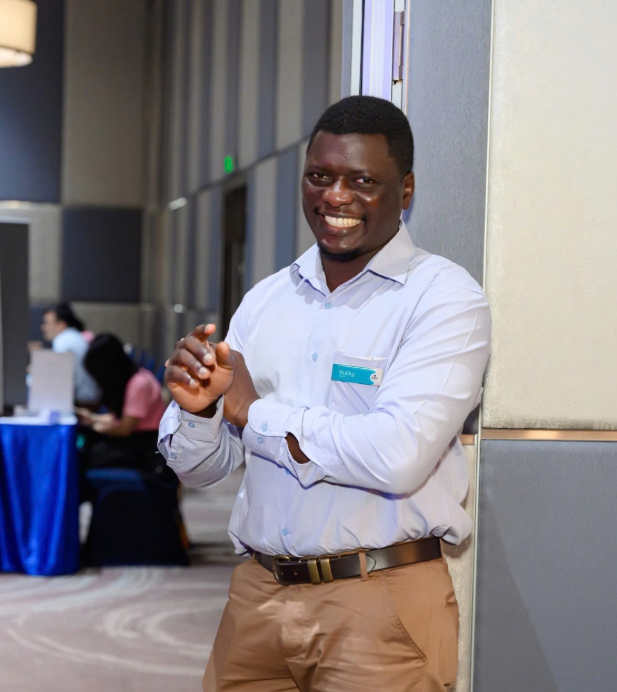
Dr Olubukola (Bukky) Tokede is a Life Cycle Assessment Certified Practitioner (LCACP) and works in the School of Architecture and Built Environment, Deakin University, Australia. He is also a Subject Editor with the International Journal of Life Cycle Assessment. He has served as Treasurer and Board Member of the Australian Life Cycle Assessment Society (ALCAS). He has authored several publications on Life Cycle Sustainability Assessment. He has served as the Scientific Committee Chair for the 12th Australian LCA Conference, Melbourne, Australia. He has also been involved in shaping the LCACP review course for supporting and strengthening professional credentials in LCA. He is the initiator and co-founder of the African LCA Initiative (ALIES) and has developed the LCSA tracker – an interactive mobile visualisation tool for reporting LCSA results.
Dr. Alba Bala
UNESCO Chair in Life Cycle and Climate Change (ESCI-UPF), Spain
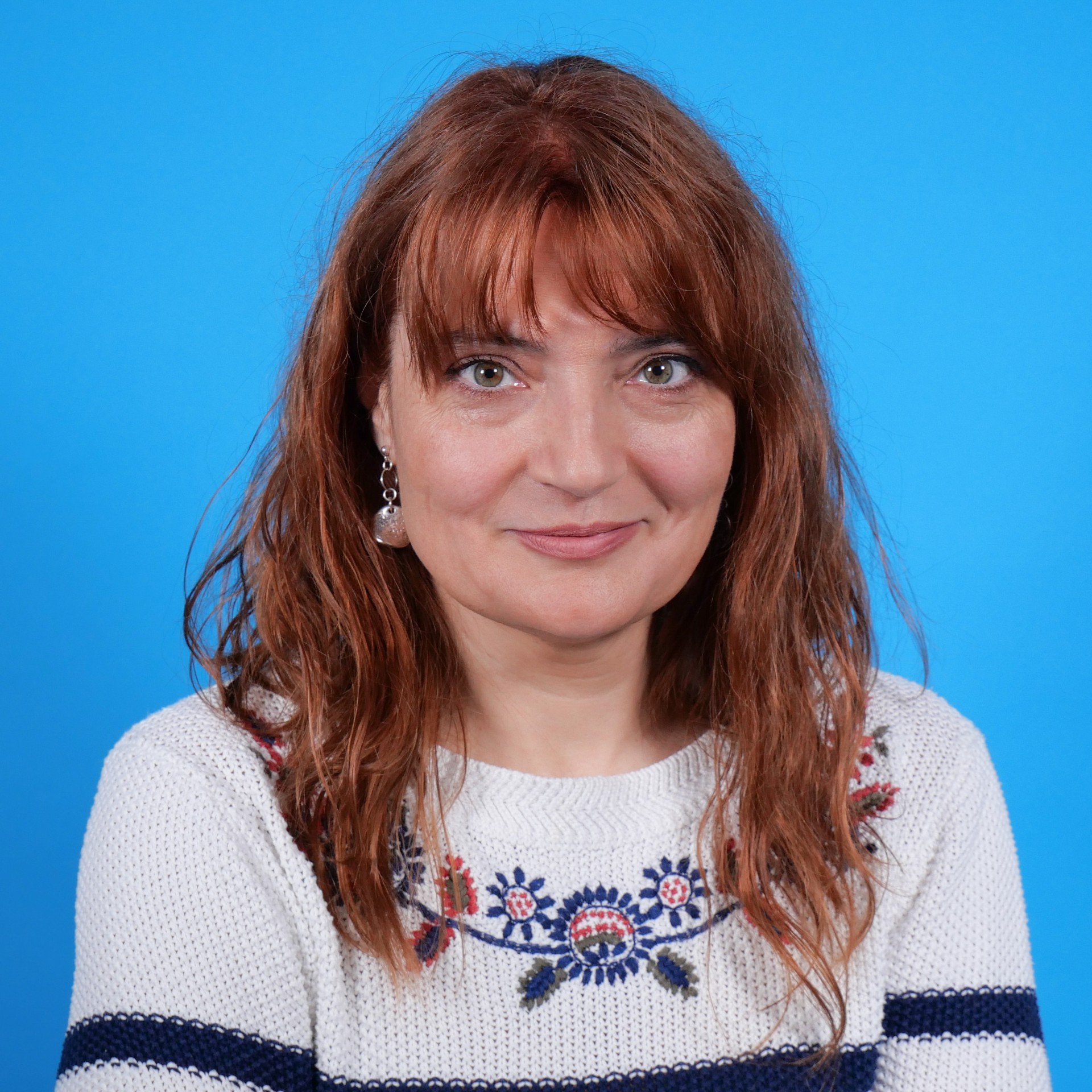
Alba Bala is the Executive Director of the UNESCO Chair in Life Cycle and Climate Change at ESCI-UPF (since November 2023) and the Academic Director of the Master of Science in Sustainability Management, jointly offered by UPF-BSM and ESCI-UPF (since its first edition in September 2022), where she also teaches. She holds a PhD in Environmental Sciences from the Universitat Autònoma de Barcelona (UAB), Spain, with a doctoral thesis on methodological advancements in life cycle assessment (LCA) of waste management systems. Her research focuses on LCA, eco-design, environmentally responsible purchasing, and the development of methodologies for comprehensive sustainability assessment that integrate environmental, economic, and social dimensions. With more than 20 years of experience in research and teaching in business and design schools, she has contributed to numerous national and international projects across sectors such as packaging, waste management, and agri-food, aiming to provide applied knowledge for decision-making. She is a member of the Spanish Network of Life Cycle Assessment and serves on the Spanish Technical Committee of GlobalEPD of AENOR Certification Body, which operates the Spanish programme for Environmental Product Declarations (EPD).
Dr. Lorie Hamelin
France’s National Research Institute for Agriculture, Food and the Environment (INRAE), France
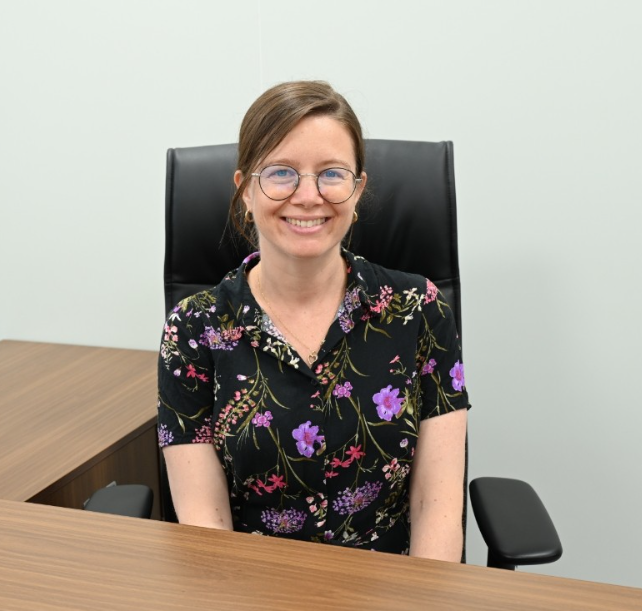
Lorie Hamelin is a senior researcher at France’s National Research Institute for Agriculture, Food and the Environment (INRAE) and Chair Professor in Sustainable Bioeconomy Transitions at INSA Toulouse (2022–2025). She holds a PhD in Environmental Technology from the University of Southern Denmark and has held research positions in Canada, Denmark, Poland, and France. Her research focuses on quantifying the environmental consequences of country-scale transitions towards greenhouse gas neutrality. This implies methodological developments on consequential LCA, as exemplified in her contributions to the Horizon Europe project ALIGNED (2022-2025). She has authored widely cited studies on bioeconomy systems and made early methodological advances in LCA related to manure management and the inclusion of land use change impacts. Awarded the prestigious Make Our Planet Great Again presidential fellowship (€1.25 M), she coordinated the Cambioscop project (2018–2023), which developed transition roadmaps towards low fossil carbon use in France. She currently serves as an expert advisor to several strategic research programmes in France, Sweden, and the European Union.